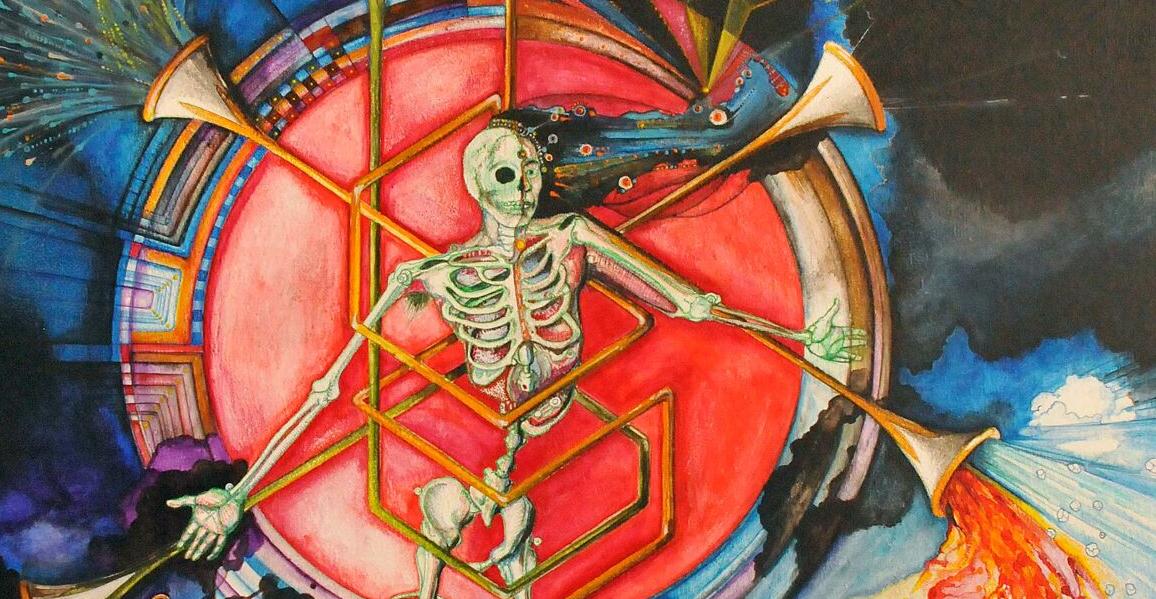
Signs of the apocalypse are everywhere.
Or, at least, the signs of people’s interest in the end of the world are everywhere.
No matter if you’re religious, you’ve likely contemplated the idea of the end times. Will there be such a thing? And if so, what exactly will plunge us into the final dark night of our souls? When? Will there be an after party?
The apocalyptic worldview is easy to spot in pop culture. Think of the vast number of dystopian novels, such as Cormac McCarthy’s Pulitzer Prize-winning, post-apocalyptic “The Road,” or the popularity of Hulu’s “The Handmaid’s Tale,” based on Margaret Atwood’s chilling 1985 book. And everybody’s heard of the dreaded number 666 or the Four Horsemen of the Apocalypse, even if they’re not exactly sure what they mean.
Colin McAllister, an assistant professor of visual and performing arts and music at University of Colorado at Colorado Springs, believes we have an inherent fascination with the subject. His interest led him to create “Through a Glass Darkly,” a free symposium on all things apocalypse, in 2015. While the event is usually held in person at the Heller Center for Arts and Humanities at UCCS, this year the Friday and Saturday symposium will be held virtually. Last year’s festival was canceled due to the pandemic.
“We are spiritually curious about the end of time or the world,” McAllister said. “Will God come back or will there be a huge climate disaster or will artificial intelligence take over? Even in this era, when we are arguably at our most peaceful, wealthiest point in history, we still have a fascination with the end.”
A number of scholars from around the world will speak on a variety of subjects, including Norse apocalyptic texts and the figure of the monster; the apostle Paul and his apocalyptic thought; Byzantine apocalyptic literature; and Japanese medieval scrolls of the afterlife with Suzanne MacAuley, who recently retired as a professor in the UCCS Visual and Performing Arts Department.
McAllister, who edited the new book, “The Cambridge Companion to Apocalyptic Literature,” will read part of his introductory essay and three responses from scholars. He’ll also give the Saturday lecture, “The Book of Revelation and the Gog/Magog Topos: Sacred Space, Imagined Geography and Portrayal of the ‘Other,’” about the mythical and evil tribes of peoples known as Gog and Magog.
Apocalyptic literature can be traced back to the Book of Revelation, the final book in the New Testament. The genre, popular in the early Christian periods, is still dissected today.
“If you read commentary on the Book of Revelations from the eighth century, you get insight into what folks’ concerns were about the end of the world and what things were going wrong in society,” McAllister said. “It’s had more commentaries written on it than any other book of the Bible. That points to how intriguing people think it is.”
Religious people, then and now, look to the text as a source of hope, as it was written to members of early Christian churches who felt they were being persecuted by the Roman empire, McAllister said.
“It says at the end of time the evil forces will be defeated by God, and a new golden age waits beyond that.”
But nonreligious people also find much to chew on in the juicy imagery.
“When I talk to students they say, ‘I wonder if social media will turn bad and destroy society,” McAllister said, “or cellphones and computers, which we love, will the technology turn on us and destroy us? Or will climate be the end of civilization as we know it?’”
Contact the writer: 636-0270


